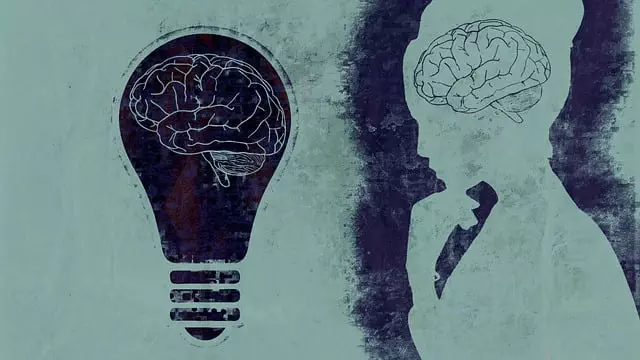Kaiser Permanente behavioral health services in Centennial offer innovative mental wellness coaching programs that combine evidence-based practices with holistic methods. Through self-awareness exercises, self-care practices, and emotional healing, coaches collaborate with clients to address concerns, set goals, and design personalized strategies. Their comprehensive approach prioritizes risk management, cultural sensitivity, and stigma reduction, empowering individuals to overcome challenges and cultivate balance and contentment in daily life. By integrating Mood Management techniques, regular evaluations, and community feedback, these programs continuously improve effectiveness while setting a high standard for the industry.
Mental wellness coaching programs are gaining prominence as effective tools for supporting individuals’ emotional well-being. This article provides a comprehensive overview of this burgeoning field, exploring key aspects from understanding mental wellness coaching to implementation strategies. We delve into successful examples like Kaiser Permanente Behavioral Health Services, highlighting their innovative approaches. Additionally, we examine the pivotal role of organizations like Centennial in shaping high-impact coaching programs. By examining these components, we aim to empower professionals and stakeholders to develop and implement robust wellness interventions.
- Understanding Mental Wellness Coaching: A Comprehensive Overview
- Kaiser Permanente Behavioral Health Services: A Leading Example
- The Role of Centennial in Shaping Effective Coaching Programs
- Key Components for Developing High-Impact Coaching Interventions
- Implementation and Evaluation Strategies for Success
Understanding Mental Wellness Coaching: A Comprehensive Overview

Mental wellness coaching is a growing field that offers personalized support and guidance to individuals seeking to improve their mental health and overall well-being. At its core, it focuses on empowering people through self-discovery, skill development, and fostering resilience in the face of life’s challenges. Inspired by successful models like Kaiser Permanente behavioral health services Centennial, these coaching programs aim to bridge the gap between traditional therapy and proactive self-care.
The process typically involves a holistic approach, incorporating various techniques such as Self-Awareness Exercises, Self-Care Practices, and Emotional Healing Processes. Coaches work collaboratively with clients to identify specific areas of concern, set achievable goals, and create customized strategies tailored to their unique needs. By promoting self-reflection, building coping mechanisms, and encouraging positive lifestyle changes, mental wellness coaching empowers individuals to take control of their emotional well-being, fostering a sense of balance and contentment in daily life.
Kaiser Permanente Behavioral Health Services: A Leading Example

Kaiser Permanente Behavioral Health Services, based in Centennial, stands as a beacon of excellence in mental wellness coaching program development. Their comprehensive approach integrates cutting-edge therapeutic techniques with innovative technology to provide personalized care tailored to individual needs. By focusing on evidence-based practices, they ensure that clients receive the highest quality support for their mental health journeys.
The organization’s commitment extends beyond clinical excellence, incorporating crucial elements such as Risk Management Planning for Mental Health Professionals, Crisis Intervention Guidance, and Cultural Sensitivity in Mental Healthcare Practice. These initiatives not only enhance safety and effectiveness but also foster inclusive environments that respect diverse backgrounds and perspectives. Kaiser Permanente’s leadership in these areas sets a benchmark for the industry, demonstrating a holistic and responsible approach to mental wellness coaching program development.
The Role of Centennial in Shaping Effective Coaching Programs

In shaping effective coaching programs for mental wellness, organizations like Kaiser Permanente behavioral health services Centennial play a pivotal role. These institutions have been at the forefront of integrating holistic approaches to care, recognizing the profound impact of emotional regulation on overall well-being. By drawing on evidence-based practices and leveraging their vast resources, they’ve developed comprehensive strategies that address not just symptoms but also the root causes of mental illness.
Centennial’s commitment to mental wellness coaching is further enhanced by their focus on stigma reduction efforts. Through tailored interventions and supportive environments, they foster emotional healing processes, enabling individuals to navigate life’s challenges with resilience. This holistic approach, grounded in scientific rigor, sets a benchmark for others in the industry, demonstrating that effective coaching programs can transform lives by empowering individuals to take charge of their mental health.
Key Components for Developing High-Impact Coaching Interventions

The development of high-impact coaching interventions for mental wellness requires a multifaceted approach, especially when tailored to meet diverse community needs. At Kaiser Permanente behavioral health services Centennial, we focus on integrating evidence-based practices with a deep understanding of the local context. A key component is Cultural Competency Training for healthcare providers, ensuring they can effectively support individuals from various cultural and socioeconomic backgrounds. This involves not only understanding different perspectives but also adapting coaching strategies to resonate with diverse audiences.
Additionally, Community Outreach Program Implementation plays a pivotal role in expanding access to mental wellness coaching. Engaging with communities through targeted outreach programs allows for the identification of unique challenges and strengths within specific populations. By fostering partnerships with local organizations and integrating feedback from community members, we can design interventions that are not only impactful but also culturally relevant. This holistic approach, combined with Mental Health Policy Analysis and Advocacy, ensures that coaching programs align with broader systemic changes, ultimately enhancing accessibility and effectiveness in addressing mental wellness needs within the community.
Implementation and Evaluation Strategies for Success

The successful implementation and evaluation of mental wellness coaching programs require a strategic approach. Kaiser Permanente behavioral health services Centennial have pioneered innovative strategies to ensure these programs reach their full potential. One key tactic involves integrating Mood Management techniques, fostering an environment where individuals learn to regulate their emotions effectively. By promoting Mind Over Matter Principles, the program empowers participants to challenge negative thought patterns and build resilience.
Regular evaluation is crucial for measuring success and identifying areas of improvement. This includes tracking participant progress through pre-and post-program assessments, focusing on metrics related to Mental Illness Stigma Reduction Efforts. Feedback from both clients and coaches provides valuable insights, enabling the program to adapt and refine its methods continuously, thereby enhancing overall effectiveness.
Mental wellness coaching programs, as exemplified by Kaiser Permanente behavioral health services and guided by organizations like Centennial, have proven to be powerful tools in promoting holistic mental health. By focusing on key components such as personalized goal-setting, evidence-based practices, and regular evaluation, these programs can significantly improve outcomes for individuals seeking support. Implementation strategies that prioritize education, access, and cultural sensitivity ensure their effectiveness, making them essential components of modern healthcare systems. As we move forward, continued research and collaboration will further refine these programs, ensuring they remain dynamic and impactful in addressing the diverse mental health needs of communities worldwide.






